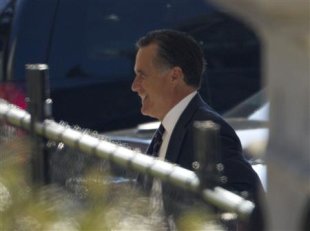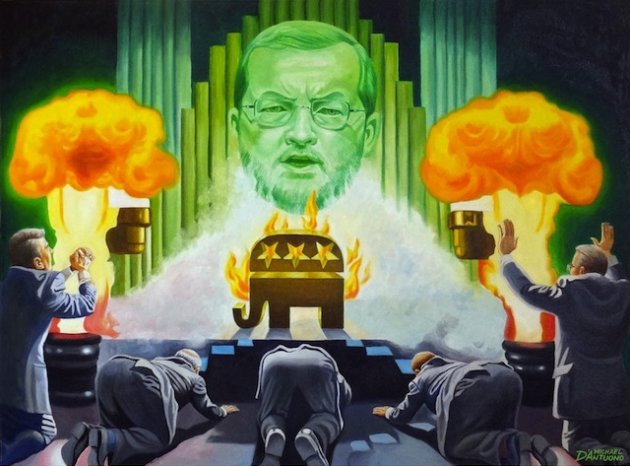Never believe anyone who tells you that the Internet is all nice or all terrible. Just like real life, there are good people and bad ones here. The majority of people behave badly occasionally and decently most of the time. Yes, there are some truly horrible people lurking and behaving in ways consistent to their form, but the thing is, we’re complicated creatures, online and off. So I don’t buy into theories that the Internet is all nice anymore than I believe all commenters are trolls. Still, there is something worrisome going on online, and if you were the Chicken Little type (which none of us here are, obviously), you might be covering your head and hiding from the Twitterverse. It’s this matter of death threats online.
RELATED: After His Vulgar Assault on Jenny Johnson, Chris Brown Quits Twitter
The most recent example of this, of course, is the recent Chris Brown/Jenny Johnson nastiness. Brown has his share of on- and offline haters, but he has plenty of adamant supporters, too. This became apparent when Johnson, a comedian who’d been on a Twitter crusade of sorts against Brown since his physical attack on Rihanna, after a stream of tweets intended to shame/provoke the singer, finally hit pay-dirt with a response (other than Brown blocking her at one point). Over the weekend, Chris Brown tweeted: “I look old as fuck! I’m only 23,” to which Johnson tweeted, “I know! Being a worthless piece of shit can really age a person.” (That tweet’s been retweeted by Johnson followers more than 7,000 times.)
RELATED: The Internet–Not All It’s Cracked Up to Be
You probably know what happened next, even if you don’t: After a pretty gross back-and-forth that doesn’t make either side look great, Brown deactivated his account. But his followers started to pile on, threatening Johnson with—what else?—death. There is no irony here about the followers of a guy who beat his girlfriend offering up a stream of brutish death threats; it is only sad.
RELATED: Is Twitter for Girls?
Enter the age of the online death threat. It’s scary, yeah, because it’s a death threat. Humans rarely like being threatened with an end to their basic essence, no matter the delivery method for that announcement. And yet, on Twitter, this becomes such a weird, surreal concept: It’s deeply impersonal (these people don’t even know each other and probably never will; NONE of them know each other, likely), fueled by a false kind of rage spawned by the way the Internet works (one side gets self-righteously mad, another side self-righteously madder, and repeat). Fortunately, in most cases, the threat is also incredibly unlikely to be fulfilled. That doesn’t make it pleasant. One might be prone to try to laugh away the kind of death threats Johnson received, from people she doesn’t know (people who don’t know Chris Brown either), who might not recognize her on the street, who most likely live nowhere near where she does and probably also don’t plan to actually kill her. Yet a death threat is pretty much the ultimate “I hate you,” and it’s worth wondering, when “I hate you” doesn’t serve to deliver the message strongly enough and we start saying “I’m going to kill you”/”you deserve to die,” how far has humanity gone down some sick drain?
RELATED: Only Six Percent of Americans Use Twitter
As David Knowles writes for The Daily in a piece titled “Twitter Terror,” Johnson is hardly the first person to be threatened on Twitter. President Obama, Mitt Romney, Ellen Page, Tom Daley, and Taylor Swift can claim this dubious badge of fame, too. The list goes on. But before the little bird was the death-threat method of the year, death threats would arrive to famous people, politicians, and those in the public eye, particularly controversial figures, as a matter of course—on paper, perhaps by telephone, and in the movies, via the weird scrawlings or puzzle-piece letter constructions of madmen. Of course, there’s no handwriting to decipher on Twitter, there are only assumptions of power and education based on icons and followers, word choice and spelling, what the person says and has said, as well as their affiliations. But again, probably, the people threatening Jenny Johnson shouldn’t scare her (if you’re really going to try to kill someone and are dumb enough to publicize it on Twitter, that’s a clear benefit to your intended victim). If there’s anything to be afraid of, it’s this idea that death threats are this kind of new online norm. I think part of that fear, the fear that this is just a regular thing nowadays, is what subconsciously creates the need in us to assume a such a horrified shock-and-outraged position about such death threats. Knowles quotes digital media expert Jeanette Castillio as calling “the Twitterverse … a very uncivil place.” Is it any more uncivil than anywhere else, though? The Internet hardly created hate, or hate-speak, or bullying. Further, do we only increase the levels of that incivility by freaking out about what a bunch of random people are raging about behind the protection, and often anonymity, of Twitter?
RELATED: Friday’s Top Tweets
As Knowles writes, also, Twitter does have a rule against this sort of thing; people aren’t supposed to “publish or post direct, specific threats of violence against others.” Still, like everything online, there is too much information, and not enough time for comprehensive monitoring. Knowles adds, “A small percentage of violent tweets are investigated by police, but even then Twitter is reluctant to betray what it believes is a sacred duty to protect a user’s privacy.”
That’s the other thing about online threats: They manage to be so incredibly cowardly, and an utterly ineffectual form of communication—until, suddenly, the media is paying attention to said threats and in some ways legitimizing them. I’m honestly not sure what the media’s role should be in acknowledging tweets of the sort that Brown and Johnson and Brown’s followers and Johnson exchanged. Sometimes it seems like that old “ignoring” tactic your mom taught you could work out to everyone’s benefit—and yet these things are bound to go viral; badly behaving celebrities are something TMZ taught us people want to know about. These things are also, when discussed calmly and rationally, fodder for good conversations about how we live now.
Like a rude comment, a Twitter death threat is a way of hiding in your comfy-safe basement in your comfy-safe boxers and saying really gross things to someone in the hopes that they will get upset. These people are bullying, or hope to bully. Which means we shouldn’t take the bait, a thing far more difficult to do than say. Turning the other cheek was hard in real life, too, and you never know, better safe than sorry. But more important than preventing “actual Twitter murders” (which I dare say and hope will not become the norm), it’s worth paying attention to this ratcheting up of the hate ante as a new kind of communication norm. A cynical person would say we no longer need to touch people, instead, we reach out to them online. We no longer need to talk on the phone, we simply tweet or email or text. We certainly don’t write letters, and we hardly write on paper. Instead we blog and Tumbl and Instagram and Facebook. And so, when we get angry, irrationally or otherwise, we take to those methods of communication to speak out, retaliate, vow revenge. The most worrisome thing about the Twitter death threat, I think, that if it’s just something people do now. I don’t want to be in the Age of the Twitter Death Threat. It makes me pretty nostalgic for the good old days of the handwritten love letter, actually.
Social Media News Headlines – Yahoo! News
 Mitt Romney and Barack Obama (Pete Souza/official White House photo)
Mitt Romney and Barack Obama (Pete Souza/official White House photo)




